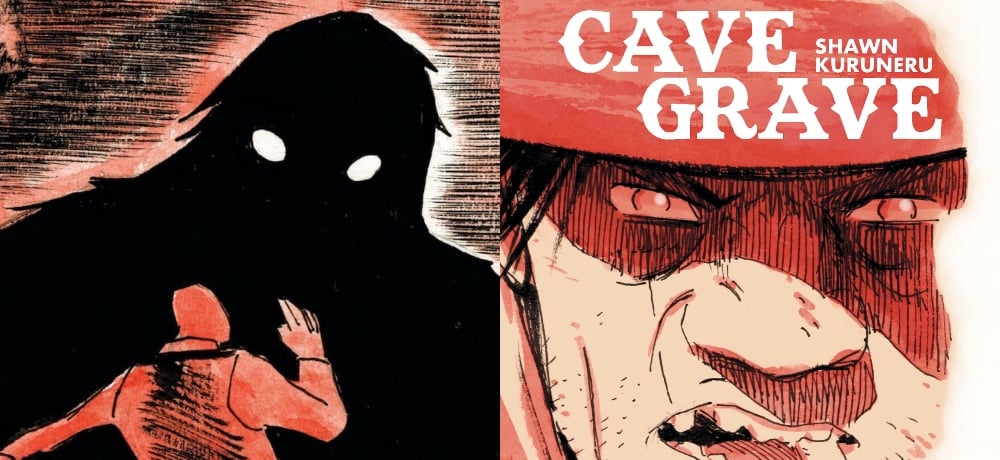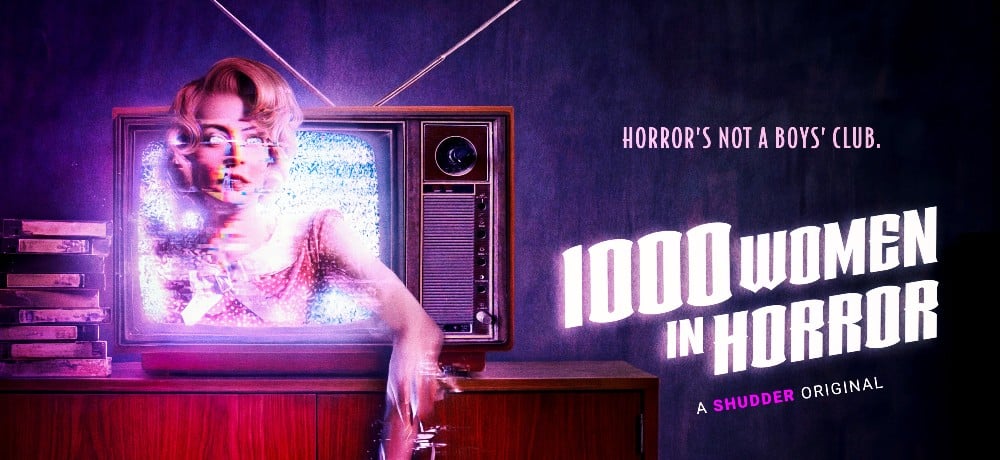





Under amazing makeup effects, he stole our hearts as Billy the zombie in Hocus Pocus, warmed our souls as Abe Sapien in the Hellboy films, and sent chills down our spines as one of the Gentlemen on Buffy the Vampire Slayer. For his role in We've Forgotten More Than We Ever Knew, actor Doug Jones is not accompanied by practical prosthetics, but he's just as mesmerizing as ever. With Thomas Woodrow's post-apocalyptic film hitting digital and VOD platforms beginning November 21st from The Orchard, I recently had the absolute pleasure of speaking with Jones, and in part 1 of the interview, we dive deep into his new intriguing role that required him to portray an intense paralysis.
In part one of our interview, Jones discusses his intriguing character in We've Forgotten More Than We Ever Knew: a paralyzed man discovered by a man and woman in an empty hotel pool in the post-apocalypse. The man and woman, on their way to a refuge that may or may not exist, cannot find anyone other than Jones' character at the well-stocked hotel, which seems like a sanctuary that's too good to be true... and maybe it is.
Read on for the first part of our interview, and stay tuned to Daily Dead for part two of our discussion, in which Jones talks about working with Guillermo del Toro on The Shape of Water and playing Saru on Star Trek: Discovery.
Congratulations on We've Forgotten More Than We Ever Knew. The movie really surprised me in a lot of good ways.
Doug Jones: Oh, thank you. It came out of nowhere as an offer to me. When Thomas Woodrow got a hold of me and he was explaining it to me over the phone, I was like, "Huh, well that's a script I want to read for sure." And when he sent the script, I was curious, with just three characters, how exciting is that going to be for a feature-length film? And when I read the script, I was quite taken by it and the journey that these two young people were on, played by Louisa Krause and Aaron Stanford.
Just the mystery, the utter mystery that comes with this story: where had they been? Where are they going? Was it really a fantasy that they were going toward? What happened to the rest of the world? All these questions that really just keep you forging ahead for answers. And then I appear with another humongous question, "Where the hell did he come from?"
And then your character seems dead, but you can also see that he's breathing in certain scenes. So it's interesting that you are representing the mystery through most of the movie.
Doug Jones: Yeah, it was probably one of the more difficult non-dialogue roles I've ever played, just because I still had to emote something. I had to emote some kind of subtext underneath a catatonic face. It was quite a chore, it really was, but in a great way. It was so different than anything I'd played before.
Thomas Woodrow, who is a great writer and director, really has a beautiful artistic sensibility about him. His direction with me was just lovely to slowly bring me to life as scenes progressed. Like when Louisa and I were sitting by the drained indoor pool of that abandoned hotel, and she's having a talk with me as she often did when she'd come visit me. I represented so many things to her. She kind of projected all of her needs for attention and everything onto me, and I didn't talk back. So it was the perfect relationship, right?
I think I represent every question you want to know. I kind of represent what happened there. With all of these people that are missing, I might be the one. I might be the portal where they went through somehow. Another unanswered question is, "Did I have a love of my own when all this happened, when people went missing? Was I waiting for someone?" I'm not a big fan of unanswered questions in movies. I like happy, tied-up endings, but for some reason in this one it worked for me. Because these two main characters, they kind of came to and had forgotten so much of their past. And what happened on Earth kind of lacked memory as well, it seemed like.
So the audience is also in that wiped memory kind of position, watching this, trying to figure out and trying to help these two reclaim some semblance of sanity and some semblance of a normal life in a world where everyone's gone.
Yeah, it's wonderful because it's almost like this kind of Shining-type haunted hotel story that's in the middle of this apocalypse. So you think you're almost getting one story, and then you get a different experience.
Doug Jones: Yeah, and I think it also is something that we as humans do. When the life around us, when the world around us isn't pleasant, we do want to escape and fantasize about a better place, a better world. So this nighttime fireside storytelling that opens the film, we don't realize until halfway through that maybe he wasn't being honest with her as he was telling the story. She kept wanting to hear it, though: "Tell me that story again, tell me that story again."
Because it was what we do. I would say right now, today in 2017, our world is not pleasant. It's probably the most turmoil I've ever seen in my lifetime, honestly. Whether it's between nations or between people within our own borders, it's a cray-cray world out there. So, escape and seeking warm fuzzies is something that we as humans would of course do.
That's what I love about the storytelling and the fantasizing about this better place that they're heading toward. And even if it's not real, it's still something worth trying to find. That was the message for me. If our surroundings aren't ideal, let's search and strive for what is. And what's my part in making this a better place?
That's a good message to take away from it. Also, what I love about this character, is that you've obviously brought so many characters to life under makeup effects over your career, but in this one you get to be without the makeup effects, and you really see Doug Jones. How was that for you to act without being under prosthetics, with which you've done amazing work in the past?
Doug Jones: Thank you for that. I've done many characters as a human over the years, and this being one of the more recent ones. I love all the creatures I've played, of course. A good character is a good character, whether it's a human or a monster. But in this case, the plus side of playing a human, even if it's a weird guy who doesn't talk and is catatonic, the plus side is that the makeup process was, "Oh, I sit down. They might touch up any skin blemishes and put a little product in my hair, and you're good to go." That was 10 whole minutes, compared to the multiple hours I'm used to. And once you are in full costume and makeup for this movie, I can still go to the craft service table and get my own snacks. I can pop open a can of Coke. I can grab a carrot stick. I can eat like a normal person. I can go to the bathroom for myself without having help. It was wonderful.
But with a movie like We've Forgotten More Than We Ever Knew, even though I'm playing a human character, he still has a mystery and a supernatural quality about him, which is also hinted at when you see that cutaway of me down the hallway and I'm doing some weird, contorted, gyrated sort of screaming motion in the hallway. It's like, "Wait, what took him over?" Am I possessed of something that has sucked the life out of the world we're in, and am I wanting to suck more life out? And do I deserve to be pushed back down into the pool again?
So he's a fantastical human. That's probably why Thomas Woodrow came looking for me, bless his heart. I'm so glad he did. This was unlike any film experience I've ever had before.
---------
In case you missed it, read part 2 of our interview with Doug Jones here.